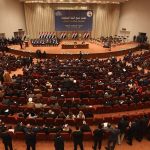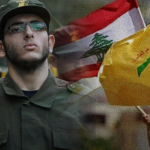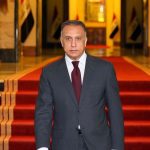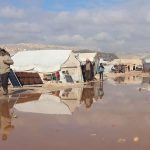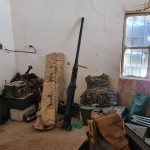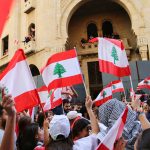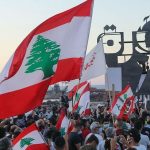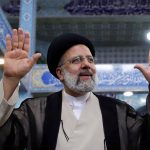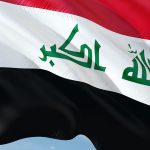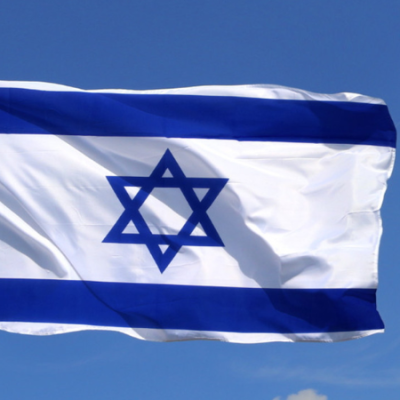Complications mount in building Iraq’s New Government
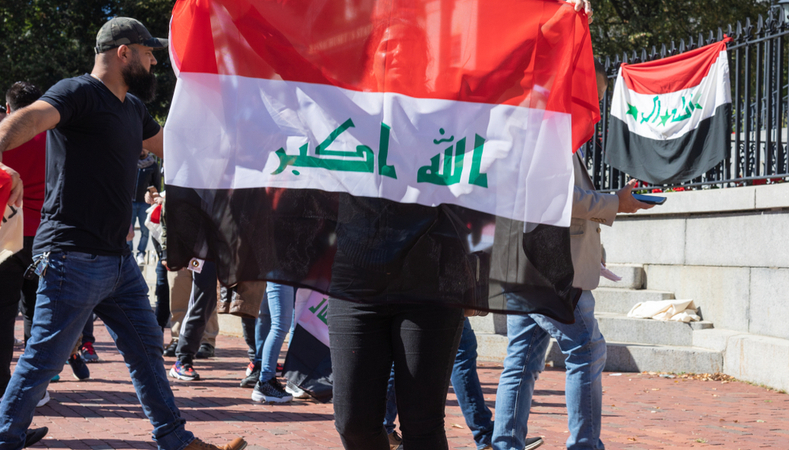
 Iraq–Following the confirmation of the country’s parliamentary speaker on Sunday, ninety-four days after Iraqis went to the elections on October 10, government formation discussions are proceeding apace among sectarian and political factions to decide the country’s president and prime minister.
Iraq–Following the confirmation of the country’s parliamentary speaker on Sunday, ninety-four days after Iraqis went to the elections on October 10, government formation discussions are proceeding apace among sectarian and political factions to decide the country’s president and prime minister.
When election results are confirmed, as they were soon before the new year, a motion is put in place for the victorious parties to form a government, according to the Iraqi constitution of 2005. Within 15 days of the results being ratified, the incumbent president requests that parliament pick a speaker and two deputies by absolute majority, led by the parliament’s eldest member, Mahmoud al-Mashhadani, who collapsed at the first meeting this week, delaying proceedings.
Former governor of Iraq’s majority-Sunni Anbar province and head of the Taqadum Alliance with 37 seats, Mohammed al-Halbousi, was re-elected for a second term as speaker of Iraq’s parliament on Sunday, along with deputies Hakim al-Zamli and Shakhawan Abdullah, during the turbulent opening session.
Rifts among Shiite lawmakers, many of whom boycotted the session, were highlighted when Sadrist politicians voted alongside Sunnis and Kurds to elect Halbousi and his deputies over the Shiite Coalition’s top contender, al-Mashhadani, wearing white sashes to symbolically depict funeral shrouds.
Related Posts
Despite criticism from pro-Iran prominent Shiite lawmakers and militias, Halbousi’s position for the next term is assured. The parliament must now elect a president by a two-thirds majority among nominated candidates. Nominations for Iraq’s president began on Tuesday morning, with a deadline for entries on Thursday. According to Iraq’s constitution, the president should be elected no later than the end of February 8, 2022.
Kurds, Sunnis, and Shiites, who make up roughly 65 percent of Iraq’s population, are split among the three primary leadership roles in the Iraqi government, according to a long-standing agreement. Sunnis retain the position of parliamentary speaker, Kurds retain the presidency, and Shiites retain the premiership. The Patriotic Union of Kurdistan (PUK) reaffirmed their support for Barham Salih to keep his presidency. The Kurdistan Democratic Party (KDP) has not said who they would vote for, but Kurds have agreed that the PUK will choose the candidate for Iraq’s presidency, while the KDP will continue to lead the Kurdistan Region.
The Iraqi constitution also specifies that the parliament’s biggest group has the power to nominate the next prime minister, who is now Mustafa al-Kadhimi, whom the president must name within 15 days after his election. After that, the prime minister-elect has 30 days to pick a cabinet, and the government is formed.
Iraq’s powerful Shiite cleric and leader of the election-winning Sadrist Movement, Muqtada al-Sadr, 47, who did not run for office, pledged on Tuesday to move forward with the formation of a national majority government, implying a coalition that includes Sunnis and Kurds, in stark contrast to his Shiite rivals’ wishes, the Coordination Framework.
The Sadrist Movement was the election’s kingmaker, winning 73 seats out of a potential 329, requiring a 165-seat majority, and Sadr has made no secret of his ambition to form a government with the election’s biggest victors from across the political spectrum. In Kurdistan, the KDP, led by Masoud Barzani, won 31 seats, while the PUK received 17 seats plus the backing of an independent candidate. Nine seats were gained by the New Generation movement.
In recent weeks, the KDP has met with Sadr’s team in the Kurdistan Region, however the Movement’s favored candidate for Prime Minister has yet to be revealed. In Erbil earlier this month, the KDP met with a group from the Coordination Framework, led by former Iraqi Prime Minister Nouri al-Maliki. While Maliki would be unpopular among Sadrists, they have yet to propose a replacement for Kadhimi, who has stated a wish to continue in government.
Former Iraqi Prime Minister Adil Abdul-Mahdi made a statement on the first parliament session on Wednesday, urging the Coordination Framework not to regard the election of the speaker and his two deputies as a setback, and stressing that the Framework would continue to work to establish a government.
The fundamental difference between the Sadrists and the Coordination Framework is that the Sadrists’ losers want to stay in power without building a coalition, whilst the larger Shiite bloc is willing to create a government with its Sunni and Kurdish allies without the Coordination Framework. Sadr also assured on Tuesday that there would be no return to sectarian bloodshed in Iraq, saying that the “door is open to some of those we still think well of.” He had earlier promised to dissolve militias in the nation. The Mahdi Army, Sadr’s previous militia, was disbanded in 2008, yet he still controls Sarayat al-Salam.
Hashd al-Shaabi (Popular Mobilization Forces), an Iranian-backed militia, played a crucial part in the ruthless suppression of protests that began in the nation in October 2019 among young Iraqis fed up with the political elite’s pervasive corruption. In reaction to the deaths of over 600 demonstrators, early elections were called. Militia supporters have been protesting the election results since then, with violence leading to a drone assault on the prime minister’s house in November.
The outcome of an election decided by fewer than half of those entitled to vote in the nation will determine whether Iraq’s political elite sustains the pattern of militias, violent authoritarianism, and perhaps growing bloodshed that it has vowed against in the coming weeks and months.

